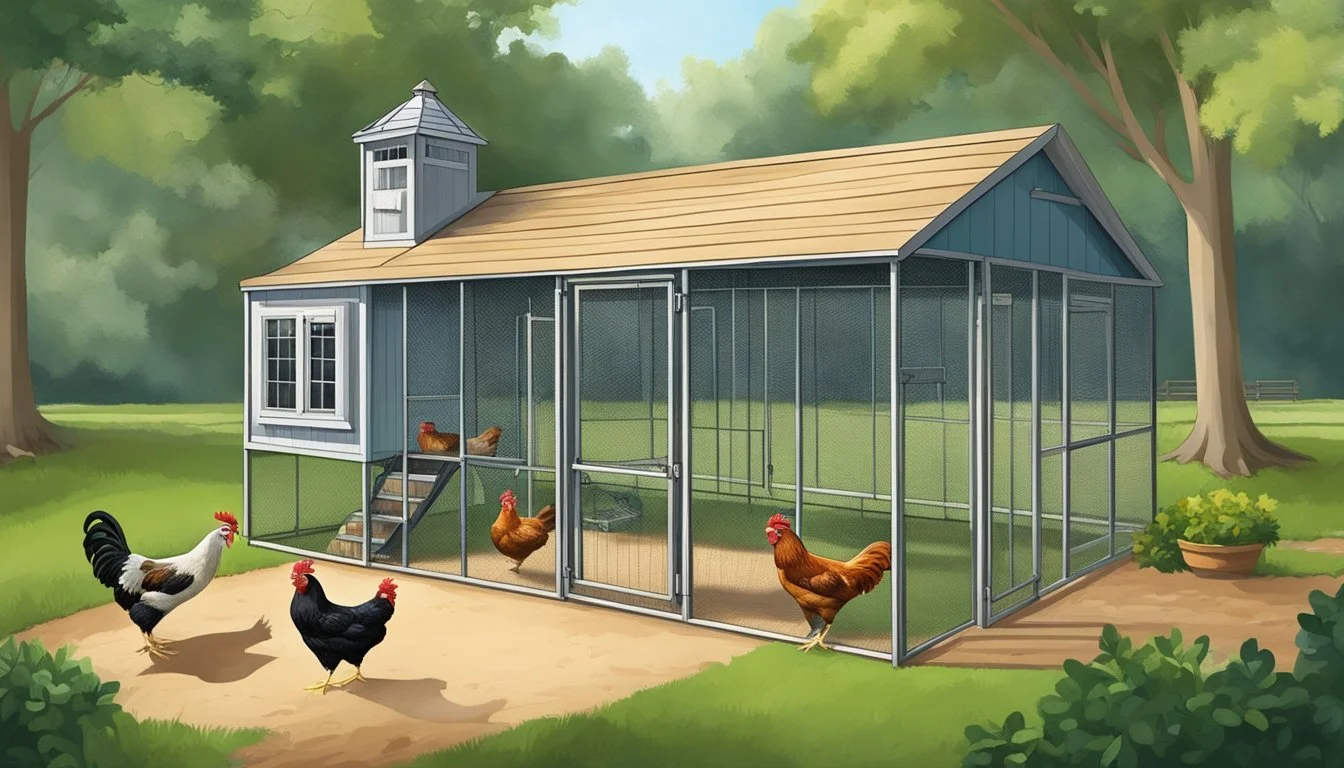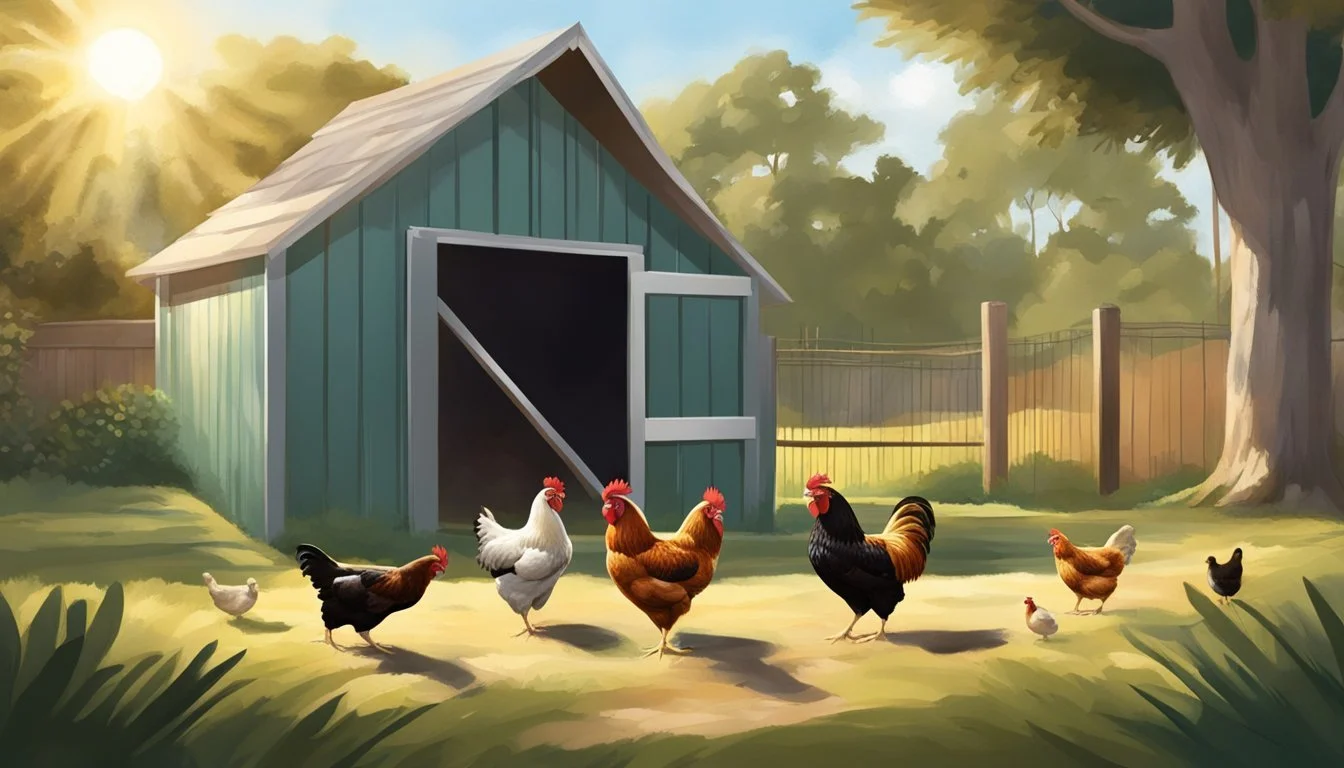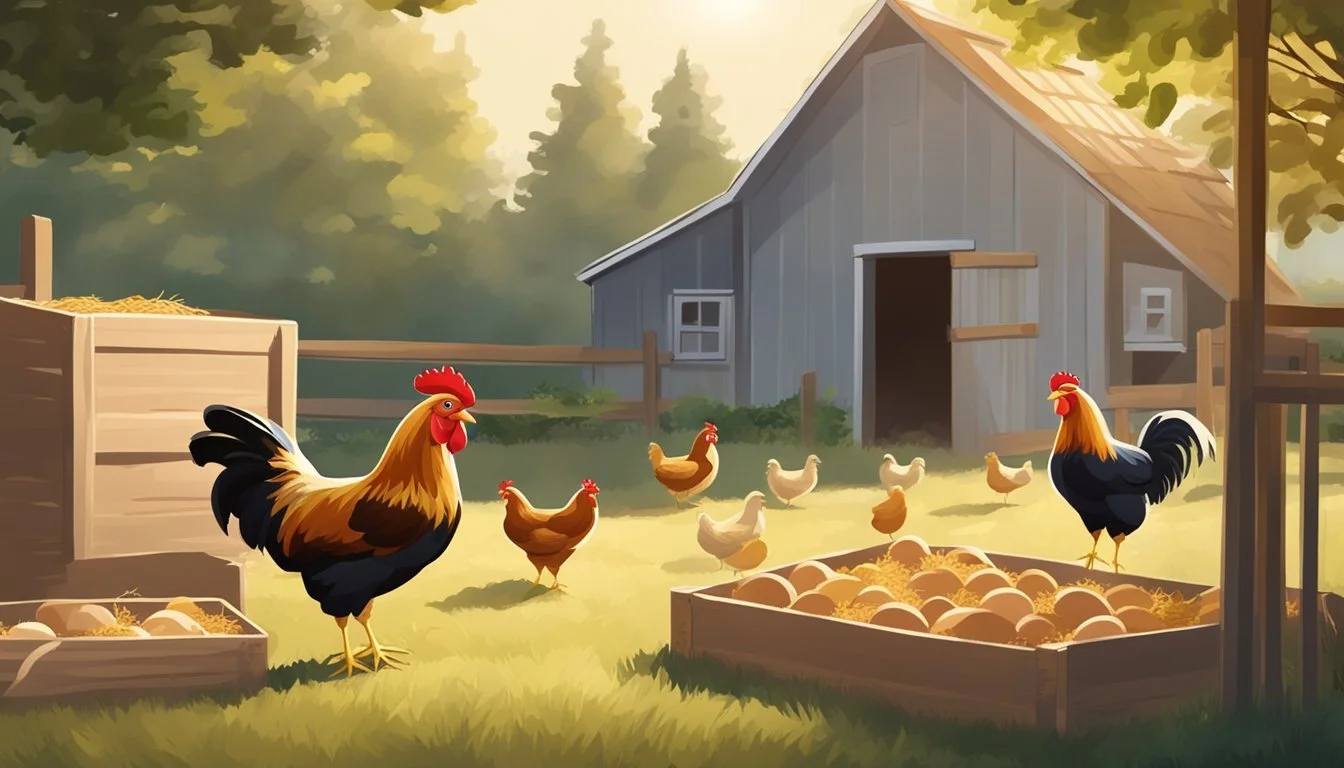Raising Backyard Chickens in Pine Hills, FL
Essential Tips for Beginners
Raising backyard chickens has become an increasingly popular practice for many residents in Pine Hills, Florida, as people seek to embrace a more sustainable lifestyle and have greater control over their food sources. The movement towards urban agriculture taps into a desire for fresher, more organic eggs and an interest in the hands-on process of caring for chickens. It also provides educational opportunities for families and helps to foster a sense of community as neighbors often share tips, supplies, and the rewards of their efforts.
Before embarking on the journey to raise backyard chickens in Pine Hills, it is crucial for prospective chicken keepers to be aware of local regulations and ordinances governing the practice. Understanding the specific rules in place within the Pine Hills community is essential, as they can dictate the number of chickens allowed, coop requirements, and other key aspects of chicken husbandry that ensure the wellbeing of the chickens and maintain harmony with neighbors.
Those considering raising chickens must also acquaint themselves with the basics of proper chicken care. This includes providing a secure and clean shelter, ensuring proper nutrition and access to fresh water, and learning about the chickens' health care needs. Experienced chicken owners in Pine Hills often share insights and advice, contributing to an informed and responsible chicken-raising community.
Understanding Local Ordinances
Before raising backyard chickens in Pine Hills, FL, it is crucial for residents to familiarize themselves with the specific city and county laws that govern poultry keeping in the area. Local ordinances in Orange County, as well as neighborhood agreements, must be carefully reviewed to ensure compliance.
Zoning and Permit Requirements
In Pine Hills, Orange County, regulations allow for backyard chickens in certain zoning districts. However, a permit might be required to keep chickens, depending on the specific zoning regulations of the area. The following is a simplified breakdown:
Permitting: Mandatory in select residential areas.
Zoning Law Compliance: Chickens are often only allowed in single-family and mobile home residential zoning districts.
Residents are advised to directly contact the local government or Orange County's municipal authorities to obtain the most current information on the permitting process and zoning requirements.
Neighborhood Agreements and Noise Restrictions
Neighborhood agreements are also an important consideration when raising backyard chickens. These agreements can contain their own set of restrictions that may be more stringent than those set by local ordinances.
Key points include:
Noise Restrictions: Roosters, known for their crowing, may be prohibited due to potential noise complaints.
Local Ordinances: These may include specifics on the distances chicken coops must be kept from neighboring homes or property lines.
Local ordinances often address noise concerns and set out specific noise restrictions to prevent nuisances. Compliance with these can be essential for maintaining good relations within the community and avoiding penalties.
Choosing Your Chickens
When considering the introduction of backyard chickens in Pine Hills, FL, one must carefully select appropriate breeds and understand the distinct needs of egg-laying hens compared to those raised for meat.
Selecting Chicken Breeds
Prospective poultry keepers should start by researching chicken breeds suited to Pine Hills' climate and their own space and productivity requirements. Here's a quick overview:
Layers: For those interested in egg production, breeds like Leghorns or Rhode Island Reds are excellent choices due to their high yield and hardiness.
Meat Birds: Individuals looking for chickens to rear for meat might consider the Cornish Cross, known for its rapid growth and sizable meat yield.
Dual-Purpose Breeds: For families desiring both eggs and meat, Plymouth Rock and Sussex chickens are suitable as they offer good egg production and a reasonable amount of meat.
Heritage Breeds: Enthusiasts of traditional breeds might explore heritage options like the Rhode Island Red or Sussex, valued for their longevity and contribution to biodiversity.
One should also consider the age of the chickens they wish to purchase. Pullets, which are young hens that have just started laying, can offer a quicker start to egg production.
Understanding the Needs of Layers and Meat Birds
The care needs for egg layers and meat birds do vary:
Layers: These birds need a balanced diet rich in calcium to support consistent egg production. A secure coop to protect from predators and nesting boxes for laying are essential.
Meat Birds: Such as the Cornish Cross, generally require more space and food due to their rapid growth. They need a high-protein diet and careful monitoring to prevent health issues related to their quick size gain.
Every type of chicken requires basic care, including fresh water, proper food, and protection from extreme weather, which is especially relevant in the Florida climate. Considering the suitability of breeds and understanding their needs are fundamental steps in raising backyard chickens successfully.
Setting Up Your Chicken Coop
A carefully designed chicken coop is critical for the health and safety of your backyard chickens in Pine Hills, FL. It should provide enough space, proper ventilation, and security from predators while catering to the natural behaviors of the birds.
Coop Size and Configuration
When constructing a stationary coop, ensure there's a minimum of 3 to 4 square feet of floor space per chicken inside the coop and 8 to 10 square feet per chicken in an enclosed run. For roosters, additional space is needed to allow for adequate movement and to prevent aggression. The interior should be well-ventilated to maintain air quality, but also insulated enough to protect against Florida’s weather extremes.
Example coop dimensions: A recommended size for a small flock is 4 feet by 6 feet, which can comfortably house up to 5 or 6 chickens.
Ventilation: Use hardware cloth or chicken wire on windows to ensure airflow and prevent predators from gaining access.
Safety Measures and Predator Protection
Predator-proofing is essential to safeguard the flock from common Florida predators such as raccoons, snakes, and birds of prey.
Fencing: Bury the fence at least 12 inches underground to prevent digging predators and consider a roof for the run to protect against aerial threats.
Materials: Use robust materials like hardware cloth instead of chicken wire for added security.
Coops must be built with strong, durable materials capable of withstanding an attempt by predators to break in. Every entry point, including doors and nesting box lids, should be secured with locks or latches.
Nesting Boxes and Roosting Perches
Nesting boxes provide a secluded area for hens to lay their eggs. Each box should be approximately 12x12x12 inches in size and lined with soft bedding such as straw or wood shavings.
Number of boxes: Typically, one nesting box for every 3-4 hens is sufficient.
Roosting perches: Allow 8-10 inches of perch space per chicken and position them at varying heights to cater to pecking order dynamics.
Remember, a well-designed coop not only keeps your chickens secure and comfortable but also simplifies the day-to-day maintenance and management of your backyard flock.
Caring for Your Flock
Proper feeding and watering are fundamental to the health of backyard chickens in Pine Hills, FL, as is maintaining a clean environment to prevent disease.
Feeding and Watering Essentials
Quality chicken feed is paramount to ensure a balanced diet for backyard chickens. Feed should be accessible at all times using feeders that are designed to minimize waste. For chicks under 8 weeks, a 18-20% starter feed is recommended, transitioning to a 16-18% starter/grower feed until 14 weeks, and then to a 16% finisher until they reach laying age. In Pine Hills, FL, humidity and rain can spoil feed, so keeping the feed dry is essential.
Chick Starter Feed: 18-20% (0-8 weeks)
Starter/Grower Feed: 16-18% (8-14 weeks)
Finisher Feed: 16% (15-18 weeks)
Waterers should provide clean water at all times and be refreshed daily to prevent the spread of disease. They should be designed to prevent chickens from walking in them and to avoid drowning, which is especially important for young chicks.
Health, Sanitation, and Disease Prevention
Regular coop cleaning is critical to prevent the buildup of chicken manure, which can attract pests and lead to disease. Coops should be equipped with easy-to-clean surfaces, and a schedule for sanitation practices should be strictly adhered to. Composting chicken waste is a beneficial practice for Pine Hills residents, as it can be used to enrich garden soil.
Daily: Remove visible manure and soiled bedding.
Weekly: Change bedding and sanitize feeders and waterers.
Monthly: Do a thorough cleaning of the entire coop.
For early life stages, a brooder equipped with heat lamps is necessary to maintain appropriate temperatures for chick development. Monitoring health includes looking out for signs of distress, abnormal behavior, or illness in the flock. If signs of disease are observed, prompt isolation and professional veterinary care are needed to prevent the spread to the rest of the flock. Proper ventilation in the coop is also critical to ensure the prevention of respiratory issues, which are common in humid climates like Pine Hills, FL.
Daily Maintenance and Egg Collection
In Pine Hills, FL, raising backyard chickens requires diligence in daily maintenance and egg collection to ensure a clean environment and consistent fresh egg yield.
Routine Cleaning and Waste Management
Regular cleaning is crucial for maintaining a healthy chicken coop. It not only helps in preventing the spread of disease but also controls odors, keeping the neighbors happy. Daily tasks should include:
Removing droppings: The coop floor should be checked and droppings removed.
Refreshing bedding: Replace or add fresh straw to nesting boxes and high-traffic areas to absorb waste and provide comfort.
A weekly deep clean might involve:
Scrubbing and sanitizing waterers and feeders to prevent algae and bacteria growth.
Raking out old bedding and replacing it with fresh straw to maintain optimal sanitation.
Waste management involves composting chicken manure or disposing of it responsibly, ensuring that Pine Hills's waste regulations are followed.
Maximizing Egg Production
For consistent fresh egg production, several factors must be taken into account.
Feeding: Hens require a balanced diet rich in protein and calcium for optimal egg production.
Lighting: Hens need about 14-16 hours of light daily to maintain steady egg production. In the shorter daylight hours of winter months, artificial lighting might be necessary.
Stress Reduction: Minimize disturbances and provide a calm environment, as stress can adversely affect laying.
Egg Collection: Eggs should be collected at least once a day to encourage hens to keep laying and to ensure eggs are clean and less prone to breakage.
By adhering to these steps, owners can enjoy a regular supply of fresh eggs and a clean, orderly coop environment.
Community Engagement and Legal Compliance
When raising backyard chickens in Pine Hills, FL, it is essential that owners engage positively with the community and carefully adhere to local laws. Ensuring good relationships with neighbors and compliance with ordinances promotes a harmonious environment and the sustainable practice of backyard poultry keeping.
Building Relationships with Neighboring Properties
Residents should proactively engage neighbors to establish a mutual understanding and address any concerns related to the chickens. Clear communication about intentions and poultry management can prevent potential disputes. It may be beneficial to share the following:
Expected number of chickens and coop location
Measures to minimize noise and odor
Assurance of cleanliness and pest control
Maintaining transparency with neighboring properties builds trust and supports a community that respects everyone's rights and preferences.
Handling Slaughtering and Selling Products
Local regulations in Pine Hills, FL generally dictate how residents can manage slaughtering and the sale of chicken products. Individuals must be aware of the following:
Slaughtering: Should only be conducted in a humane and discreet manner, away from public view. It is advisable to check with local laws regarding permitted practices.
Selling Eggs or Meat: Must comply with health and safety standards, and may require specific licensing. Regulations often stipulate labeling requirements and prohibit sales that have not been inspected.
Residents must stay informed about current ordinances to ensure their activities remain lawful and respectful of community standards.
Benefits and Challenges of Raising Backyard Chickens
Benefits:
Companionship: Chickens can offer a unique form of companionship. Their behaviors and interactions can be both entertaining and soothing for their owners.
Learning Experience: Whether it’s understanding their care requirements or learning about the various breeds, raising chickens is an educational journey. For families, it promotes a hands-on approach to learning about animal husbandry and responsibility.
Resources: The University of Florida’s Institute of Food and Agricultural Sciences (UF/IFAS) Extension is a valuable resource for Pine Hills residents. It provides guidance on best practices for backyard poultry care, environmental management, and local laws.
Pest Control: Chickens feed on pests and insects, helping to keep their population in check in your garden.
Challenges:
Costs: Initial investments and ongoing expenses such as feed, coop construction, and veterinary care can add up. It’s not always an inexpensive hobby despite some expectations.
Pests and Predators: While chickens feed on insects, their feed can attract unwanted pests like rats. Secure storage of feed is essential.
Noise Concerns: Roosters are known for their early morning crowing which can be a noise concern, leading to potential disputes with neighbors. Pine Hills residents need to be aware of local noise ordinances.
Health Risks: Chickens can carry zoonotic diseases. Proper hygiene and coop maintenance are crucial to minimize these risks for chickens and humans alike.
For residents considering this endeavor, they should assess both the benefits and the challenges, leveraging local resources like UF/IFAS Extension to ensure a successful and rewarding experience raising chickens in Pine Hills, FL.
Additional Considerations for Backyard Poultry
When one plans to expand their flock or integrate free-range practices in Pine Hills, FL, a well-informed approach is essential. Adherence to best practices ensures the well-being of the poultry and maximizes productivity.
Expanding Your Flock and Raising Chicks
Expanding a backyard flock necessitates an understanding of the space and resources required for raising chicks effectively. Adequate space is crucial; each chicken needs at least 2-3 square feet inside the coop and 8-10 square feet in an outdoor run. When introducing new chicks, heat lamps or warming plates maintain appropriate temperatures, especially during their first weeks of life. Chicks initially require an 18-20% protein starter feed, transitioning to a grower feed as they mature.
First 0-8 weeks: Feed starter crumbles with an 18-20% protein content.
8-14 weeks: Transition to a starter/grower feed with a 16-18% protein level.
Beyond 15 weeks: A finisher feed or layer feed, usually around 16% protein, is suitable for maturing birds.
Integrating Free-Range Practices
Incorporating free-range practices allows poultry to engage in natural behaviors such as foraging, which can lead to healthier, more active birds. When free-ranging, chickens should have access to greens like clover, which can improve the nutritional content of their eggs. Perches and shelters should be available in the range area to provide safety and comfort. It's also crucial to maintain a manageable number of chickens per square footage to avoid overgrazing and to ensure the sustainability of the free-range area.
Perch availability: Provide at least 8-10 inches of perch space per chicken.
Greens: Rotate areas or supplement with kitchen scraps to ensure continuous access to fresh greens.
By carefully considering these additional factors specific to expanding a flock and embracing free-range practices, backyard poultry enthusiasts in Pine Hills, FL can maximize their success and enjoy the benefits of healthy, productive birds.









